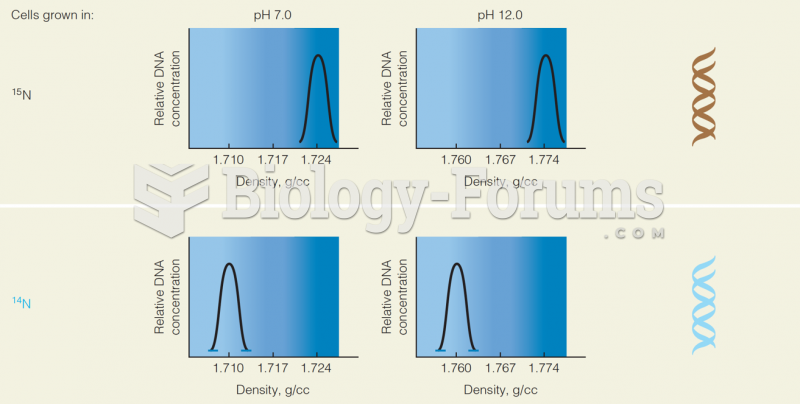|
|
|
By definition, when a medication is administered intravenously, its bioavailability is 100%.
About 80% of major fungal systemic infections are due to Candida albicans. Another form, Candida peritonitis, occurs most often in postoperative patients. A rare disease, Candida meningitis, may follow leukemia, kidney transplant, other immunosuppressed factors, or when suffering from Candida septicemia.
The heart is located in the center of the chest, with part of it tipped slightly so that it taps against the left side of the chest.
The Centers for Disease Control and Prevention (CDC) was originally known as the Communicable Disease Center, which was formed to fight malaria. It was originally headquartered in Atlanta, Georgia, since the Southern states faced the worst threat from malaria.
Egg cells are about the size of a grain of sand. They are formed inside of a female's ovaries before she is even born.







